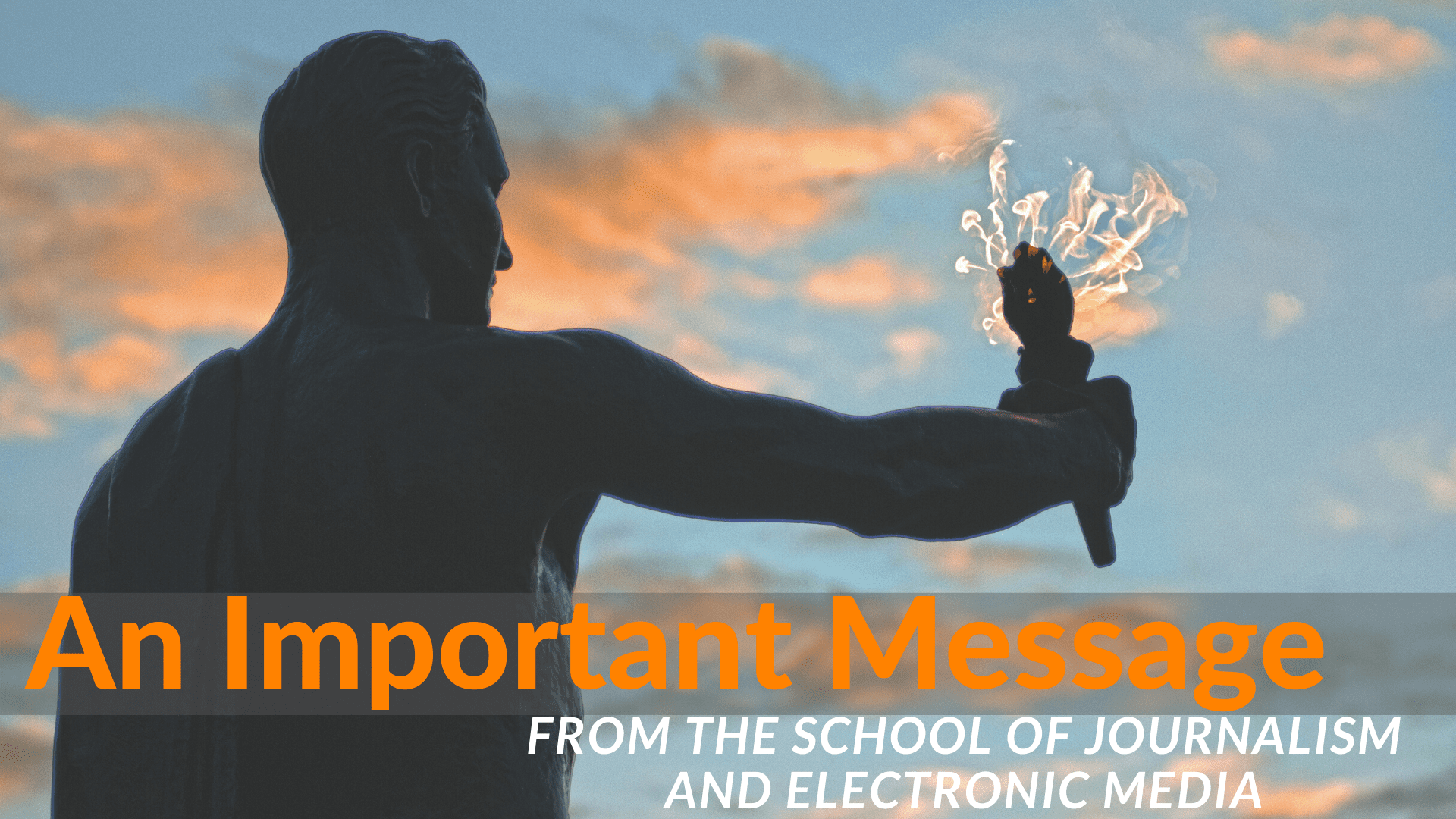An Important Message

May 31, 2020
Dear UTK Journalism and Electronic Media students and alumni,
This has been another gut-wrenching week for black Americans and a tragic reminder of the inequalities and racism that persist in our nation. On our TV screens and social media feeds we have witnessed, first, the devastating image of the death of yet another unarmed black man, this time George Floyd at the hands of a Minneapolis police officer, and, second, footage of the latest round of protests that have erupted around the country. Amid the devastating death toll of the COVID-19 pandemic, the injustices and brutalities of racism persist and are further magnified by our unjust criminal system. As allies, we stand alongside those who are grieving; those who are suffering; and those who continue to fight for change, including our students.
Journalists also have been caught in the crossfire. Over the last few days, we have seen reports of a freelance photographer struck in the eye while covering the protests in Minneapolis, a TV reporting team in Louisville shot with pepper balls and damage to the CNN headquarters in Atlanta, among other examples. Reporters, such as CNN’s Omar Jimenez, have also been subject to arrest while reporting on these events. Journalists, particularly at local news outlets, are working to cover complex stories in their communities at a time when many newsrooms have been stifled by furloughs and layoffs and when they continue to be unfairly framed as enemies of the people.
We also recognize the frustrations that black, indigenous, people of color (BIPOC) feel about the ways their experiences and activism have been represented (and misrepresented) in the press. Scholarship has long shown that when news organizations cover protests, they tend to highlight the most sensational, disruptive, combative and dramatic aspects of these events while privileging authoritative sources over the goals and demands of those seeking to be heard. These decisions not only shape public perceptions of protestors but can also affect the legitimacy associated with a movement.
Further, we must consider journalists of color and the particular trauma they face in covering events like those that occurred this week. These courageous souls walk in the footsteps of those who traveled before them, such as Frederick Douglass and Ida B. Wells — men and women of color who bravely put their lives at stake, using techniques of investigative and advocacy journalism to expose the truth about the brutalities of slavery and racism.
As journalism professors, we aim to teach our students to report accurately, honestly, fairly and independently. We also want our students to report with empathy and a sense of purpose. The death of George Floyd and the resulting protests reveal the significance of journalism in shining a light on abuses of power and injustices. However, they can also reveal the shortcomings of long-held journalistic norms, frames and practices.
In the midst of a national crisis, we must take this moment to reflect as individuals, allies and contributors to the journalistic community. We condemn the brutal racism that permeates society, in the U.S. and around the world, and consider our roles in constructing, shaping and distributing these narratives.
As the faculty of the School of Journalism and Electronic Media, we join Chancellor Donde Plowman in condemning racism and violence and seeking to build a campus that promotes kindness, equity and inclusion. We are committed to seeking out new ways of thinking about and discussing journalism that adequately capture this historical moment, voices who have been marginalized and the historical context that is imperative for moving forward. We are here to talk, and, more importantly, we are here to listen. There are many more stories to tell.
Sincerely,
The JEM Faculty